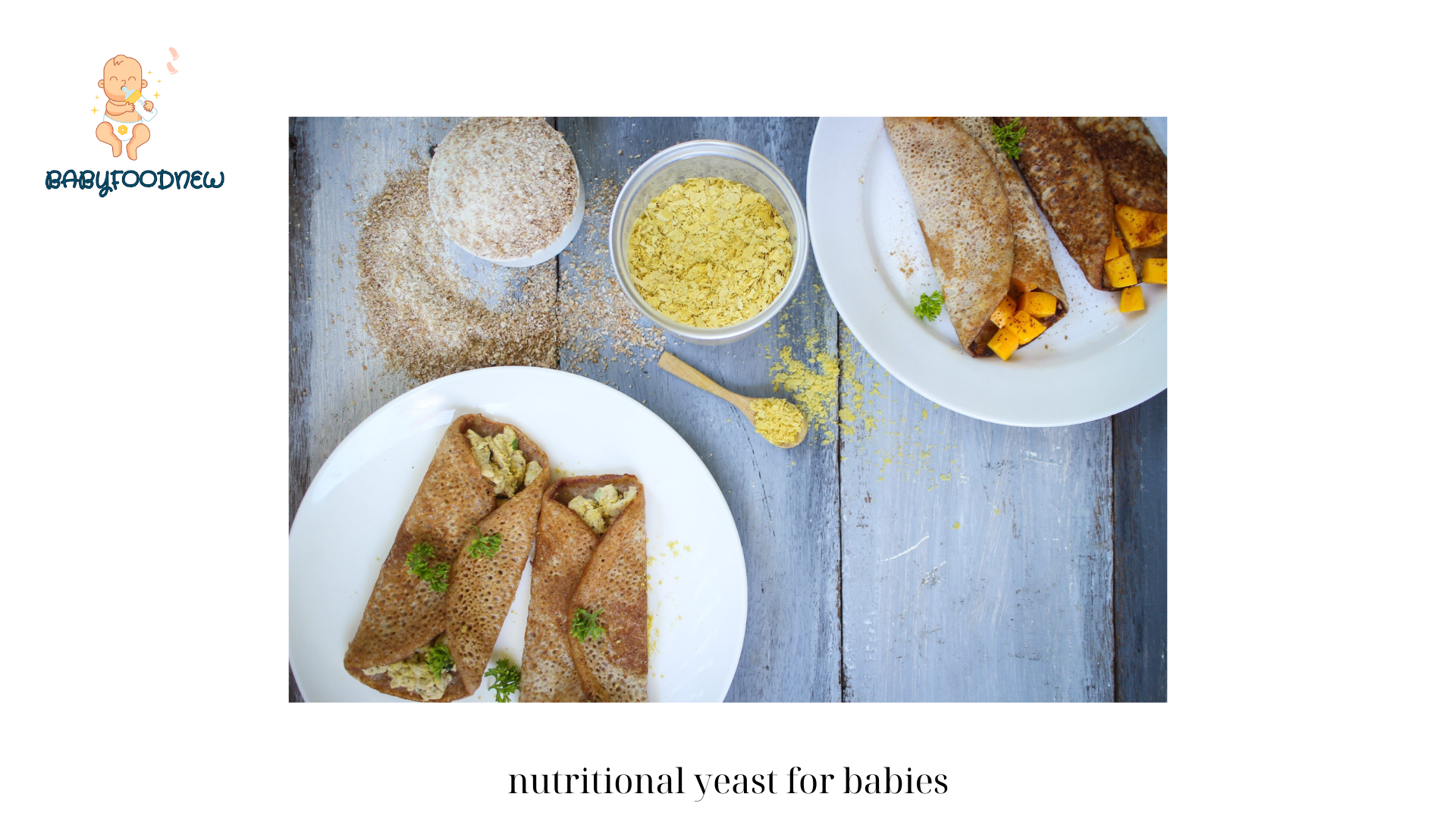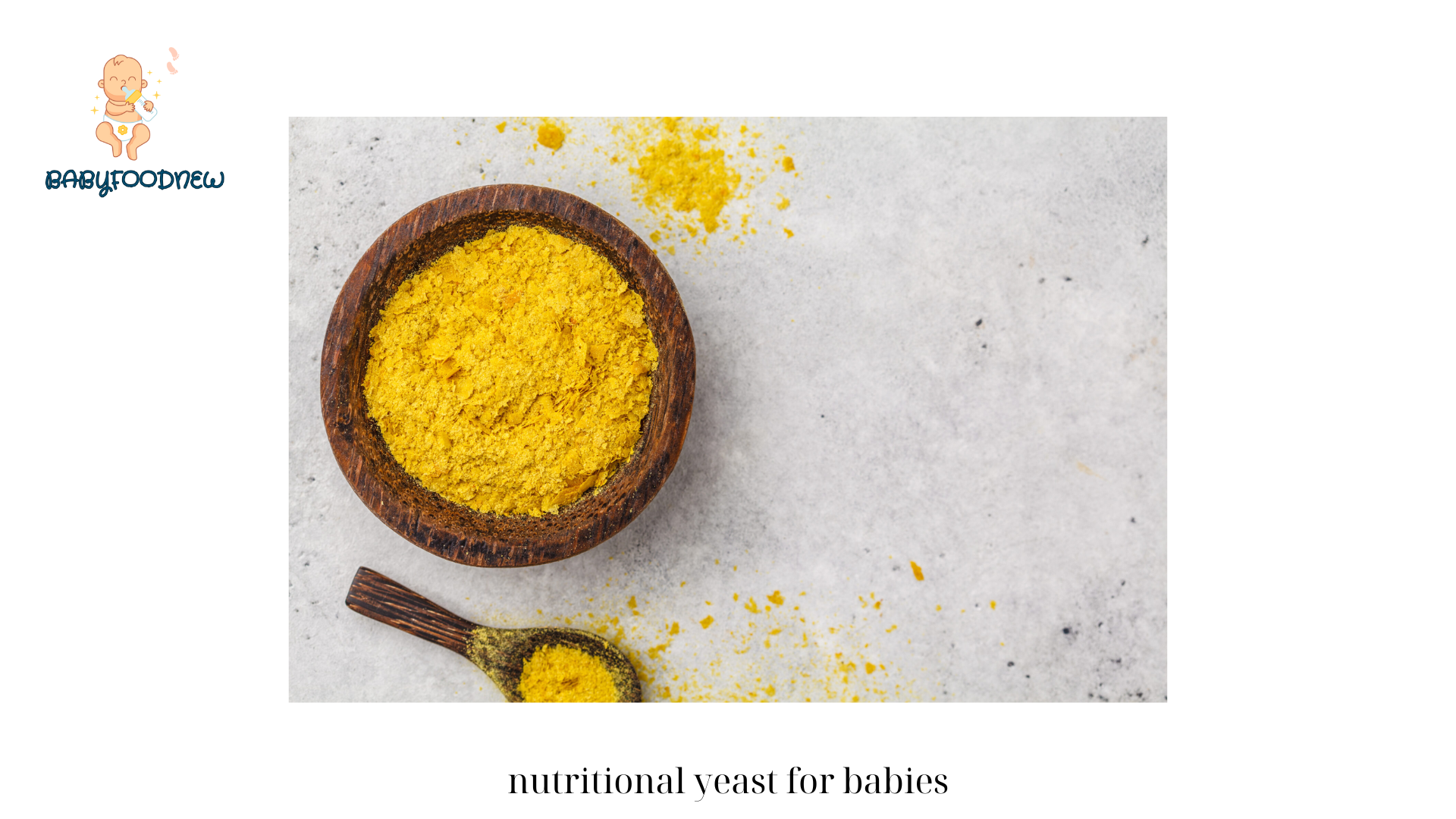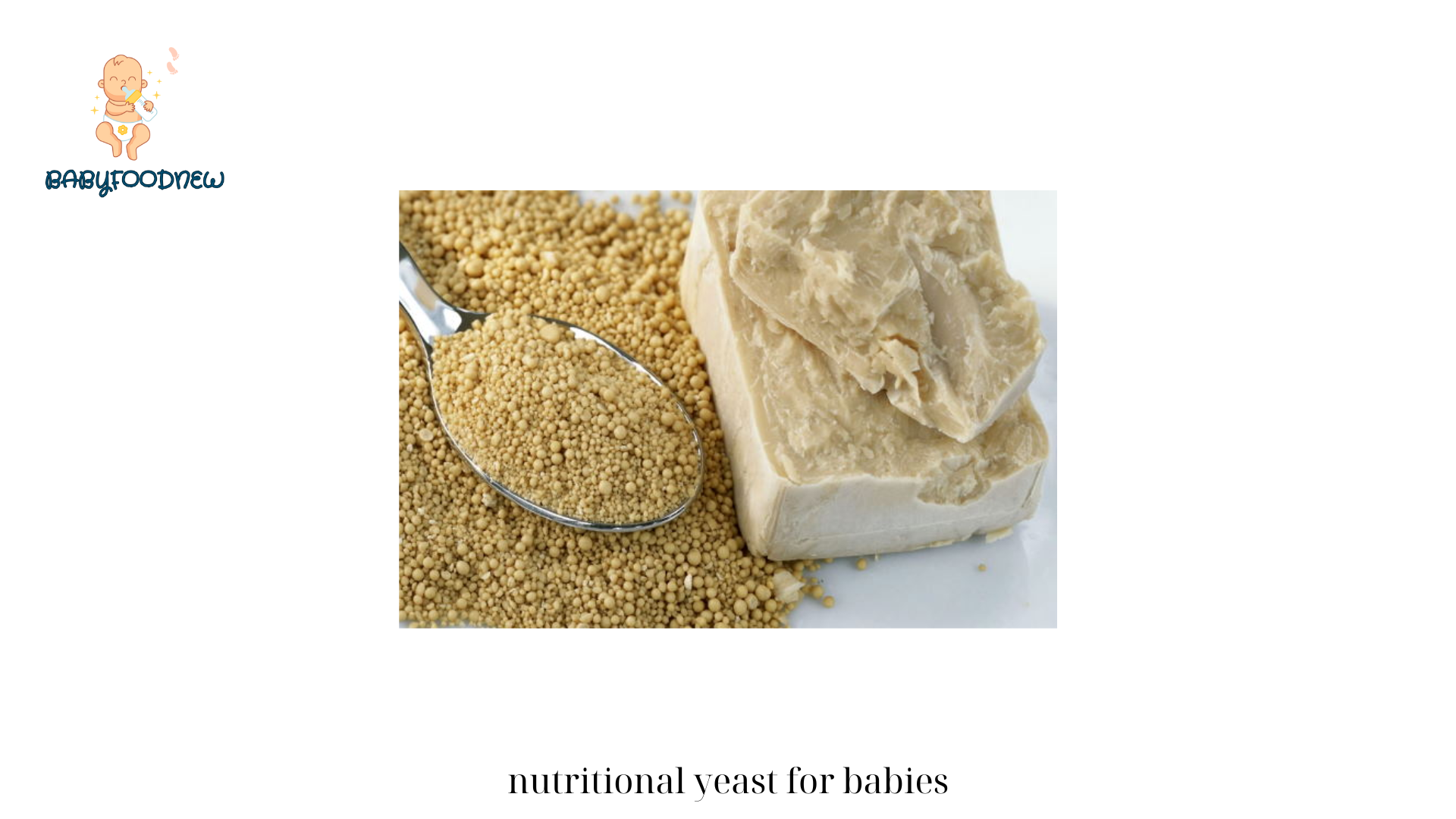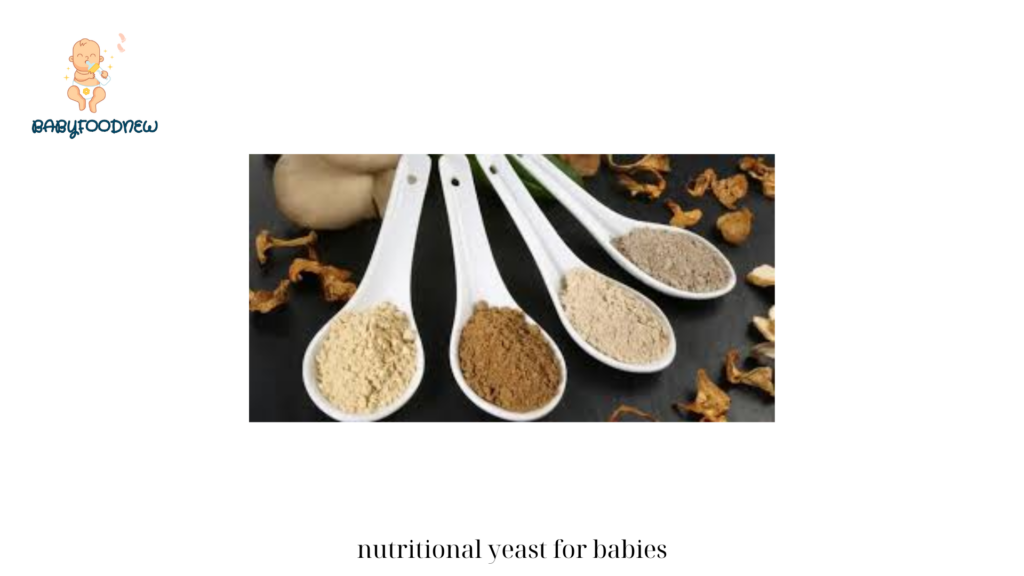Generate Your About Us Content
As parents, we constantly strive to provide our babies with the best nutrition possible and when it comes to introducing solid foods, we often seek out wholesome and nutrient-rich options so one such food that has gained popularity in recent years is nutritional yeast. Although commonly used as a vegan cheese substitute or a flavor enhancer for adult dishes, nutritional yeast also holds potential benefits for babies. In this article, Babyfoofnew will explore the benefits and uses of nutritional yeast for babies, shedding light on why it has become a popular choice among parents.
Nutritional Yeast for Babies: Benefits and Uses

Nutritional yeast can be a valuable nutritional yeast for babies to a baby’s diet, offering a range of nutrients and potential health benefits. From boosting nutrient intake and supporting immune health to enhancing digestive function, nutritional yeast holds promise as a nutritious and flavorful ingredient. As with any new food, it is crucial to introduce it gradually and monitor your nutritional yeast for babies. Remember to prioritize a well-rounded diet and consult with healthcare professionals for personalized advice. By exploring new flavors and incorporating wholesome ingredients like nutritional yeast, we can nourish our babies and set them on a path of healthy eating from an early age.
- What is Nutritional Yeast?
Nutritional yeast, scientifically known as Saccharomyces cerevisiae, is a deactivated strain of yeast. It is grown specifically for its nutritional properties and is rich in vitamins, minerals, and protein. Unlike active yeast used for baking, nutritional yeast does not have leavening properties. It is available in the form of yellow flakes or powder and has a nutty, cheesy flavor. - Nutritional Profile:
One of the primary reasons nutritional yeast for babies is gaining popularity is its impressive nutritional profile. It is a complete protein source, containing all nine essential amino acids required for optimal growth and development. Nutritional yeast is also a good source of B vitamins, including thiamine, riboflavin, niacin, vitamin B6, and vitamin B12. Additionally, it provides minerals such as zinc, selenium, and iron. - Boosts Nutrient Intake:
Introducing nutritional yeast to a nutritional yeast for babies can help boost their nutrient intake. The B vitamins present in nutritional yeast are essential for energy production, brain development, and a healthy nervous system. Vitamin B12, in particular, is crucial for the formation of red blood cells and the development of the brain and nervous system. Since vitamin B12 is primarily found in animal-based foods, nutritional yeast serves as a valuable source for vegan or vegetarian families.

- Supports Immune Health:
The immune system plays a vital role in protecting nutritional yeast for babies from infections and illnesses. Nutritional yeast contains beta-glucans, which are believed to support immune function. Beta-glucans are complex carbohydrates that have been shown to enhance the activity of immune cells, helping to strengthen the immune system and promote overall health. - Enhances Digestive Health:
Digestive health is crucial for babies as they transition to solid foods. Nutritional yeast is a rich source of dietary fiber, which aids in promoting a healthy digestive system. Fiber helps regulate bowel movements and prevents constipation. It also acts as a prebiotic, promoting the growth of beneficial gut bacteria and supporting a healthy gut microbiome. - Flavorful Addition to Baby Food:
One of the reasons parents appreciate nutritional yeast for babies is its distinct flavor. The nutty and cheesy taste of nutritional yeast can add depth and richness to baby food purees or finger foods. By incorporating nutritional yeast into homemade baby food recipes, parents can introduce new flavors and textures, making mealtime more enjoyable for their little ones. - Allergen-Friendly:
Nutritional yeast is naturally free from common allergens such as dairy, soy, and gluten. This makes it a suitable option for babies with allergies or sensitivities. However, it is always essential to introduce new foods gradually and monitor for any adverse reactions. - How to Introduce Nutritional Yeast to Babies:
When introducing nutritional yeast to babies, it is recommended to start with a small amount and gradually increase it over time. Begin by adding a sprinkle of nutritional yeast to homemade baby food purees or mixing it into cooked vegetables or grains. Observe your baby’s response to ensure they tolerate it well.

- Other Considerations:
While nutritional yeast offers nutritional yeast for babies benefits, it is important to remember that it should not be the sole source of nutrition for babies. It is meant to complement a well-balanced diet that includes a variety of foods. Consulting with a pediatrician or a registered dietitian can provide personalized guidance on incorporating nutritional yeast into a baby’s diet. - Conclusion:
Nutritional yeast can be a valuable addition to a baby’s diet, offering a range of nutrients and potential health benefits. From boosting nutrient intake and supporting immune health to enhancing digestive function, nutritional yeast holds promise as a nutritious and flavorful ingredient. As with any new food, it is crucial to introduce it gradually and monitor your baby’s response. Remember to prioritize a well-rounded diet and consult with healthcare professionals for personalized advice. By exploring new flavors and incorporating wholesome ingredients like nutritional yeast, we can nourish our nutritional yeast for babies and set them on a path of healthy eating from an early age.
Related Posts:
- Best Books on Baby Nutrition: A Comprehensive Guide…
- Breakfast Foods for Babies: Nourishing Start to the Day
- Can Cats Eat Baby Food? A Guide to Feline Nutrition
- How to Make Chicken Baby Food: A Nutritious Option…
- How to Make Green Bean Baby Food: A Step-by-Step Guide
- Best Finger Foods for Baby: Nutritious Options for…


